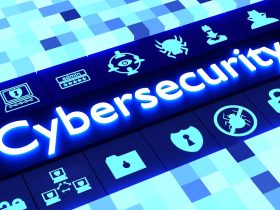1. Xmore.ai Strengthens Cybersecurity Solutions through Strategic Investment
Xmore.ai recently secured a significant investment from ReAlpha AI Labs, marking a pivotal moment in the company’s efforts to enhance its cybersecurity offerings. This collaboration will bolster Xmore.ai’s research and development capabilities, particularly in the domain of AI-driven cybersecurity solutions. The partnership signifies a growing trend where AI and cybersecurity are becoming increasingly intertwined, with AI being used to detect and mitigate cyber threats in real-time. ReAlpha’s investment demonstrates confidence in Xmore.ai’s potential to address the evolving landscape of cybersecurity, particularly as businesses face more sophisticated attacks (Source: Fintech Global).
AI-powered solutions are transforming how businesses approach cybersecurity, using machine learning models to detect patterns, recognize anomalies, and respond to threats faster than traditional systems. The collaboration between Xmore.ai and ReAlpha is expected to result in the development of advanced tools that can help organizations identify and prevent cyberattacks before they cause significant damage. This partnership is one of many recent investments that underscore the critical need for innovation in cybersecurity, as AI technologies become central to defending digital infrastructures.
2. Cybersecurity as a Key Selling Point for Investors
When it comes to securing funding, startups need to consider more than just their product offerings—strong cybersecurity measures are now a crucial factor in investor decision-making. According to a recent analysis, demonstrating robust cybersecurity practices, such as using Virtual Private Networks (VPNs) and other secure protocols, can provide an edge in investor pitches. Investors are more aware than ever of the risks associated with data breaches and cyberattacks, especially for tech-focused startups and companies handling sensitive information. As cyberattacks grow in frequency and complexity, companies that can demonstrate secure practices and systems are more likely to gain investor trust (Source: Tech Funding News).
This emerging trend reflects the increasing awareness of cyber risk in the business world. Companies are not just required to innovate, but to protect their innovations from bad actors. Cybersecurity measures like multi-factor authentication (MFA), encryption, and secure cloud systems can significantly influence investor decisions, showing that a company is proactive in managing its risks. In a world where data breaches can lead to severe financial and reputational damage, presenting strong cybersecurity can be a game-changer in fundraising scenarios.
3. NIS 2: The Next Wave of Cybersecurity Regulations
The European Union’s Network and Information Security (NIS) Directive has introduced new updates under NIS 2, promising to enforce stricter cybersecurity standards across member states. One of the most notable aspects of NIS 2 is the introduction of real financial penalties for non-compliance. This directive aims to protect critical infrastructure from cyberattacks and ensure businesses are adhering to robust cybersecurity protocols. As digital transformation accelerates across industries, NIS 2’s tougher regulatory stance is seen as both a necessary step and a challenge for businesses that must now reassess their security frameworks (Source: Channel Futures).
The directive is particularly important for sectors such as energy, healthcare, transportation, and finance, where cyberattacks can have catastrophic consequences. NIS 2 not only broadens the scope of companies required to comply with cybersecurity standards but also introduces accountability measures for corporate leadership. Executives will be held personally responsible for failures to implement adequate security measures, which is expected to drive more aggressive investment in cybersecurity solutions.
4. Strengthening Secrets Management with Doppler’s New Features
Doppler, a leading platform for managing environment variables and secrets, has introduced a new feature called “Change Requests,” designed to bolster secrets management security. This feature allows for more stringent control and oversight over changes made to sensitive data, such as API keys and passwords. Change Requests are an important tool for teams to manage and review proposed changes before they are implemented, adding an extra layer of security. This is particularly crucial as improper secrets management can lead to serious security breaches (Source: Cybersecurity News).
With the growing complexity of application development and infrastructure management, securing secrets has become more challenging. Tools like Doppler are becoming indispensable for development teams, enabling them to maintain security while still being agile. As more businesses move their operations to cloud environments, ensuring that secrets are protected from unauthorized access is becoming a key component of cybersecurity strategy.
5. Crypto.com Achieves PCI DSS v4.0 Certification
In a significant achievement, Crypto.com has become one of the first cryptocurrency platforms to earn the PCI DSS v4.0 certification, an updated version of the global security standard for handling card payments. This certification highlights Crypto.com’s commitment to ensuring the highest standards of security for its users, particularly in safeguarding their payment data. As digital currencies continue to gain mainstream acceptance, maintaining robust security protocols is critical for crypto platforms to establish trust with their users and partners (Source: FinanceFeeds).
The PCI DSS v4.0 certification is particularly important as it signals that Crypto.com has adopted cutting-edge security measures to protect against cyberattacks, fraud, and data breaches. Given the rise in cybercrime targeting crypto platforms, achieving this certification not only enhances Crypto.com’s security posture but also sets a precedent for the industry. Other cryptocurrency exchanges will likely follow suit, as securing sensitive user information becomes even more essential in an increasingly digital financial landscape.
6. The Coming Cybersecurity Tsunami: CMMC 2.0
The U.S. Department of Defense is preparing to roll out the Cybersecurity Maturity Model Certification (CMMC) 2.0, which will impose strict cybersecurity requirements on defense contractors. This move is expected to send shockwaves through the defense industry, as thousands of firms will need to comply with the new standards or risk losing their contracts. CMMC 2.0 aims to enhance the cybersecurity resilience of defense supply chains by ensuring that all contractors, regardless of size, have appropriate safeguards in place (Source: RealClear Defense).
The introduction of CMMC 2.0 represents a major shift in how cybersecurity is managed within the defense industry. While larger companies may already have robust systems in place, smaller contractors will need to invest significantly in upgrading their cybersecurity infrastructure. This new wave of compliance requirements is expected to drive a surge in demand for cybersecurity services, as defense firms scramble to meet the new standards. Ultimately, CMMC 2.0 is designed to protect sensitive defense data from cyber espionage and other malicious activities, making it a critical development for national security.
In conclusion, the cybersecurity landscape is rapidly evolving, driven by innovations, regulatory updates, and emerging threats. From strategic investments in AI-powered security solutions to new regulatory frameworks like NIS 2 and CMMC 2.0, businesses across industries must adapt to stay protected. These developments underscore the growing importance of cybersecurity not only as a defense mechanism but also as a strategic business asset.














Got a Questions?
Find us on Socials or Contact us and we’ll get back to you as soon as possible.